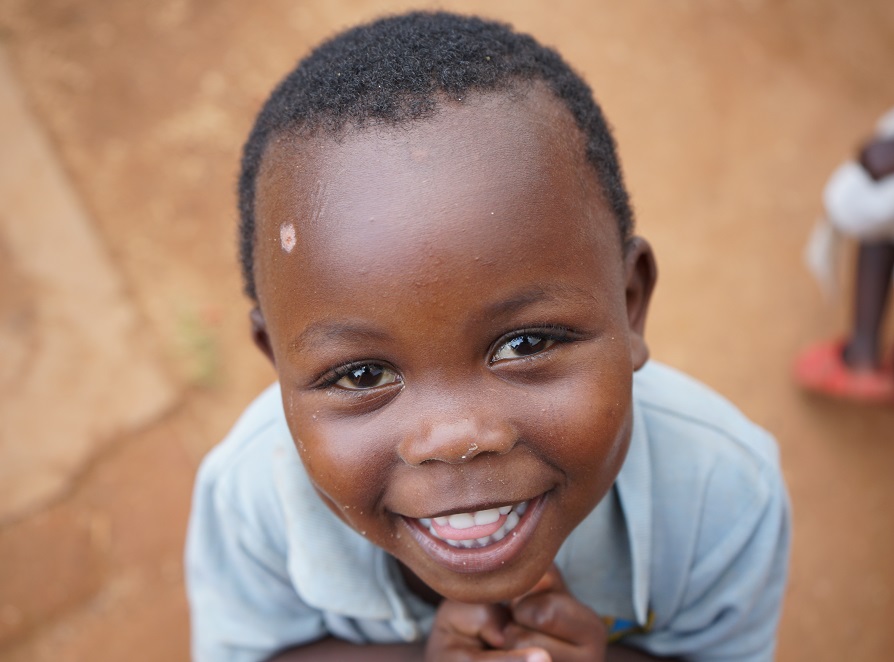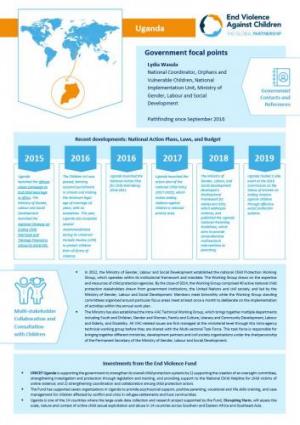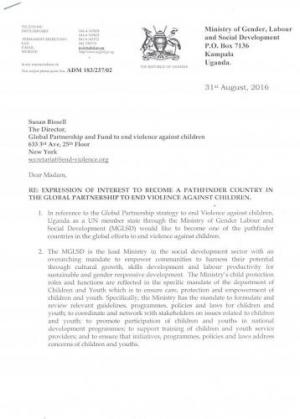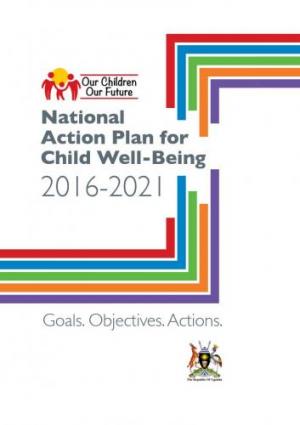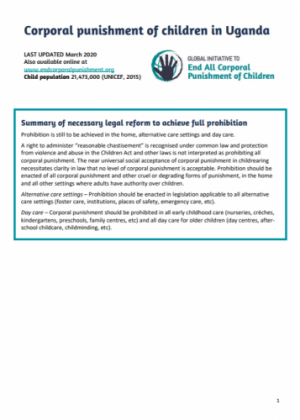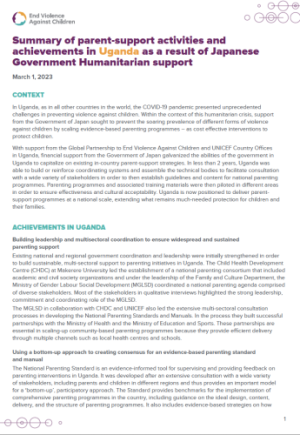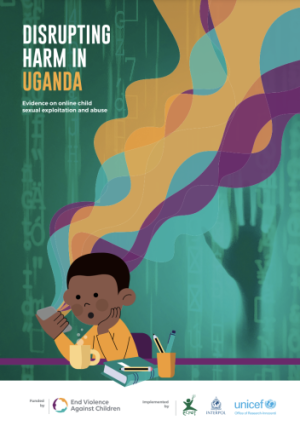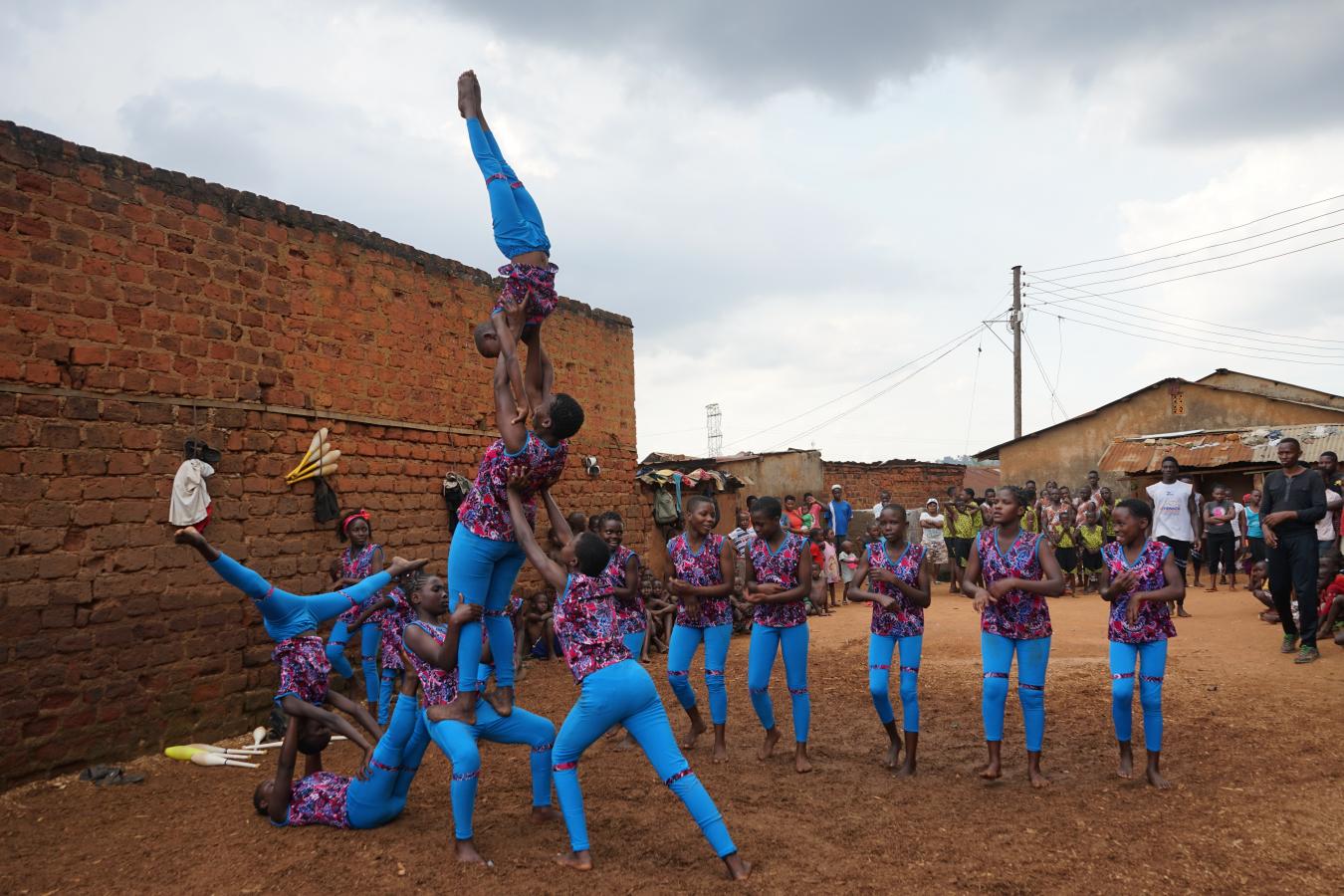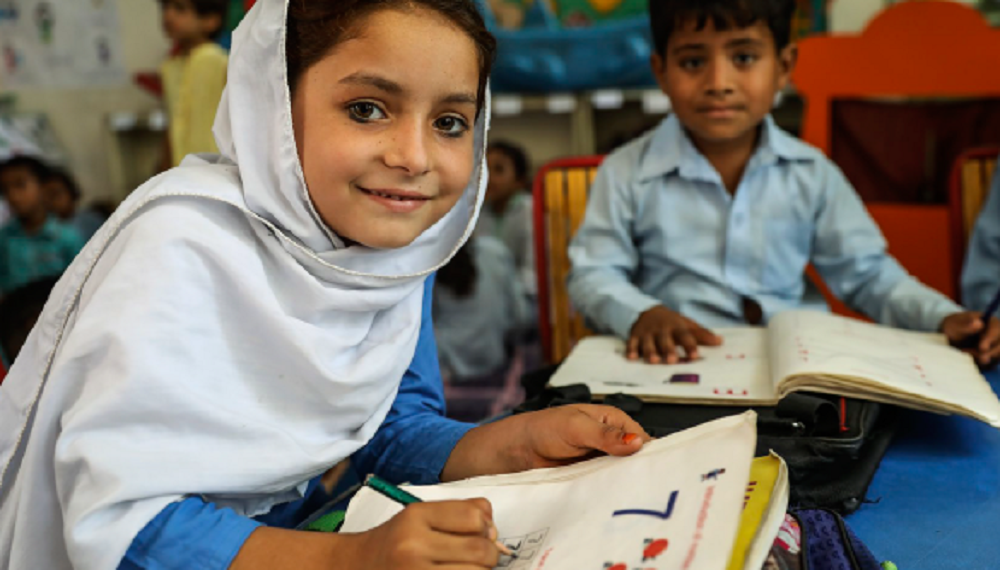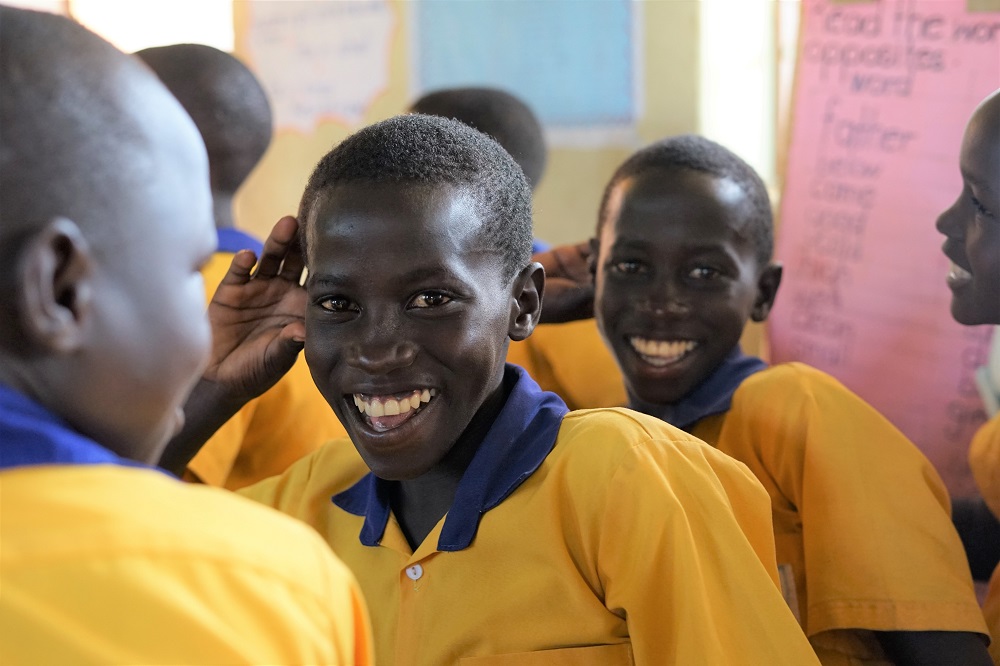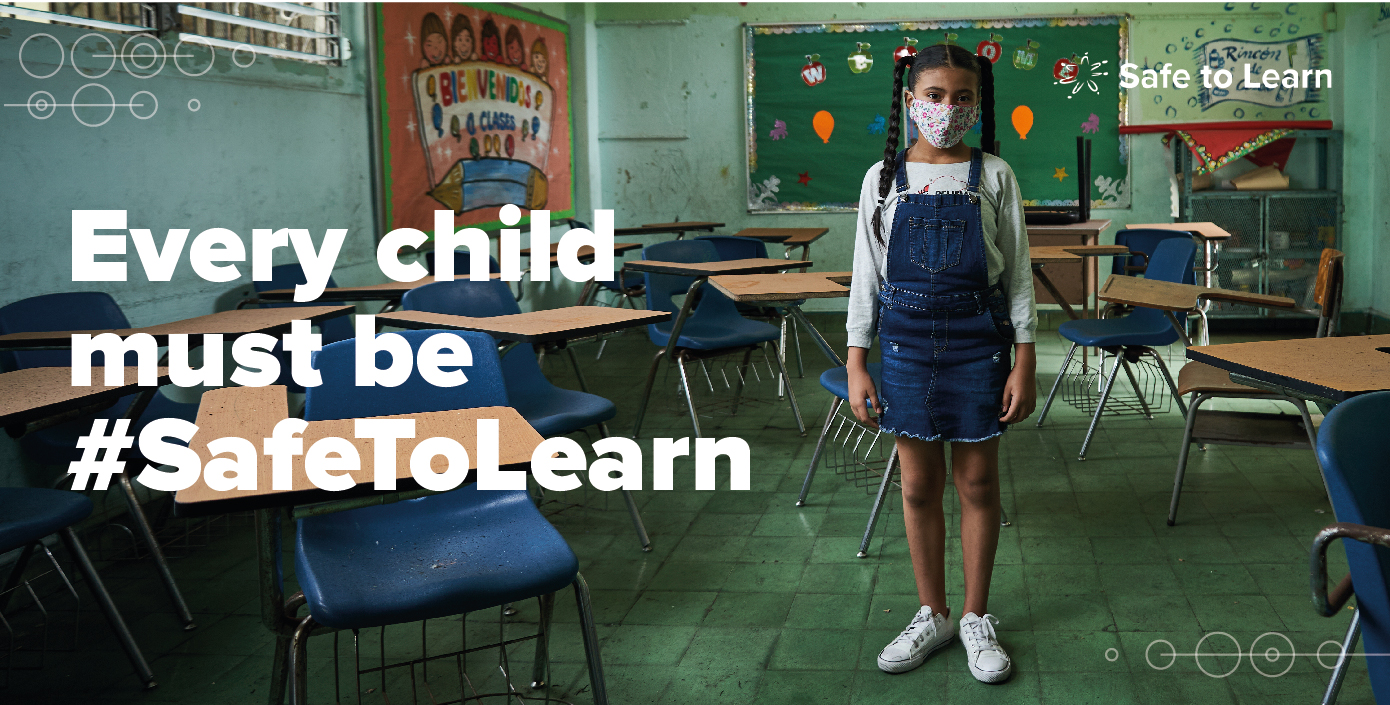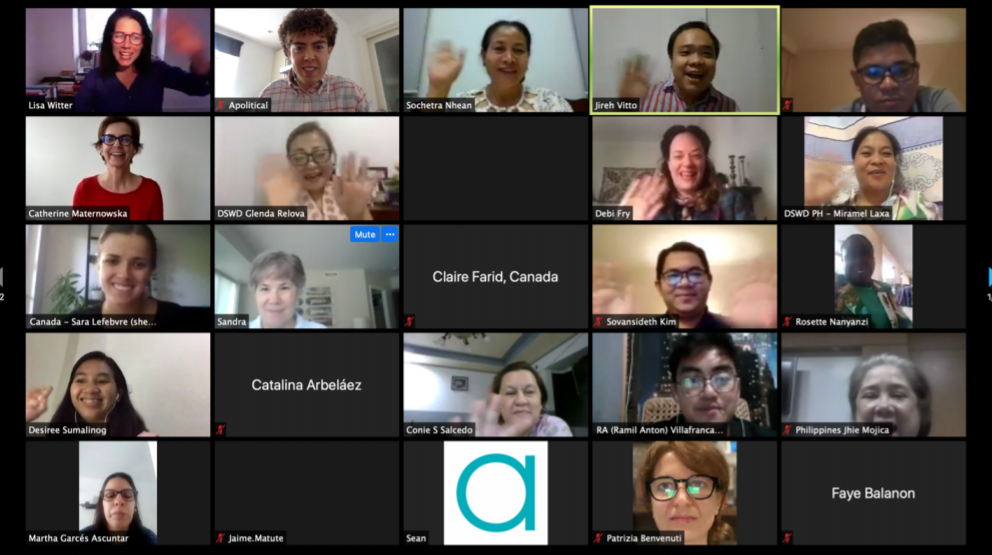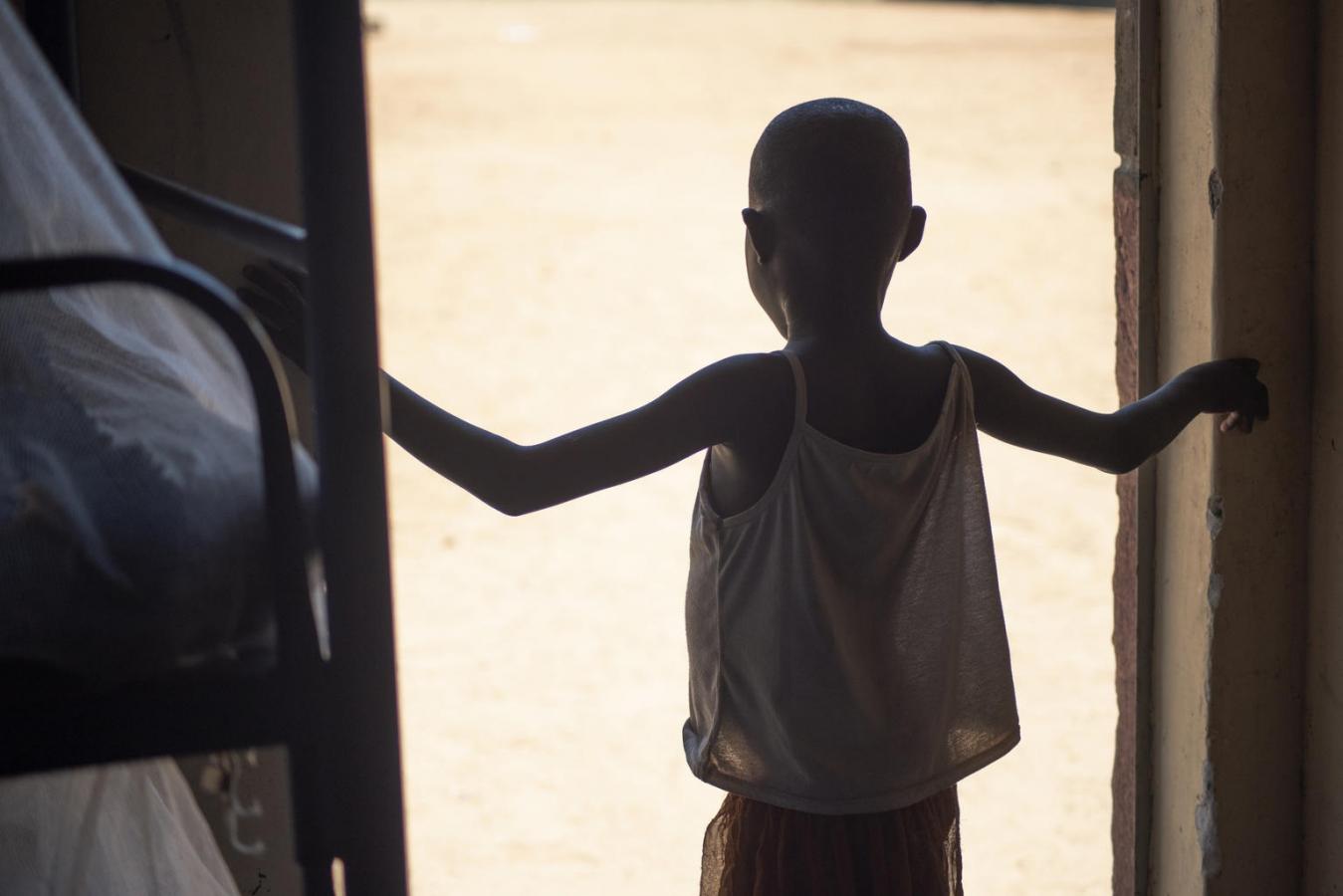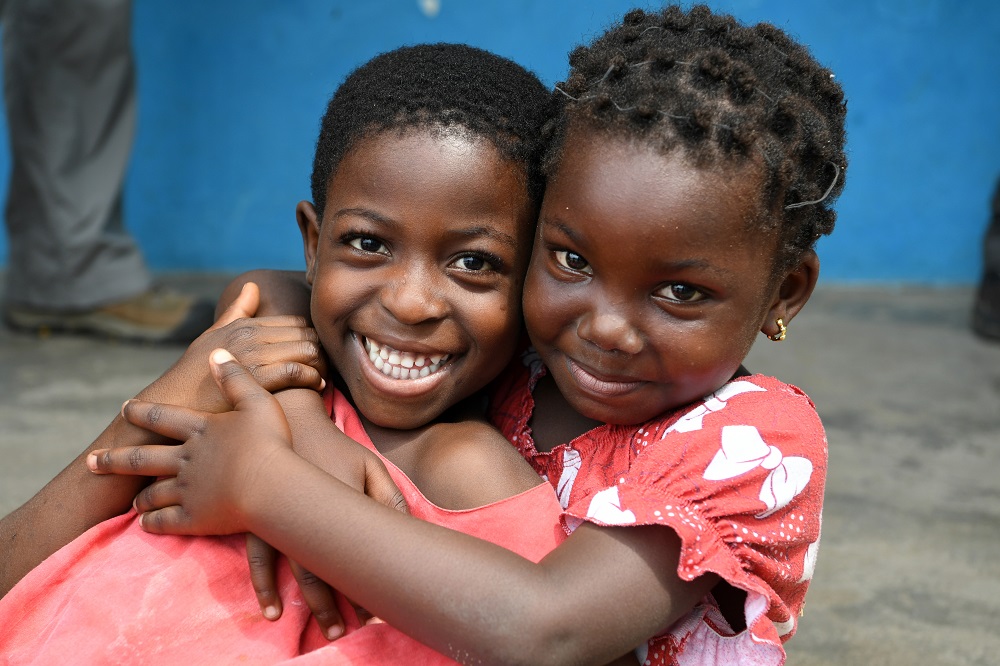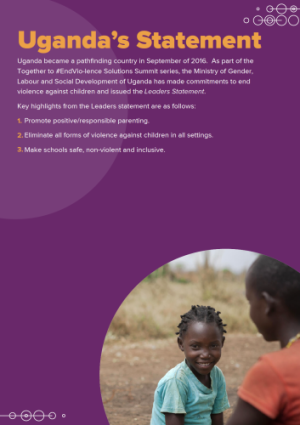 Together to End Violence Leaders Statement
Together to End Violence Leaders Statement
VACS in Uganda
In 2018, Uganda released a national survey report on violence against children. This report broke down the context, prevalence and consequences of violence in Uganda, and offered evidence-based solutions to address such challenges.
“The Government of Uganda stands ready to use the Violence Against Children Study as a launching point to develop a comprehensive, evidence-based, and multi-sectoral action plan to prevent and respond to violence against children,” said Janat Mukwaya, the Minister of Gender, Labour and Social Development, in the study’s forward.
Today, Uganda is using the results of the study to inform the country’s National Action Plan for Ending Violence Against Children and other critical new strategies. In 2019, for example, the government developed a multi-sectoralframework for adolescent girls to focus specifically on violence against young women. This framework outlines the government’s commitment to coordinating, delivering and implementing a package of services for young women in Uganda. It also addresses past bottlenecks, including financing, service delivery, and communities’ limited knowledge of issues facing adolescent girls.
